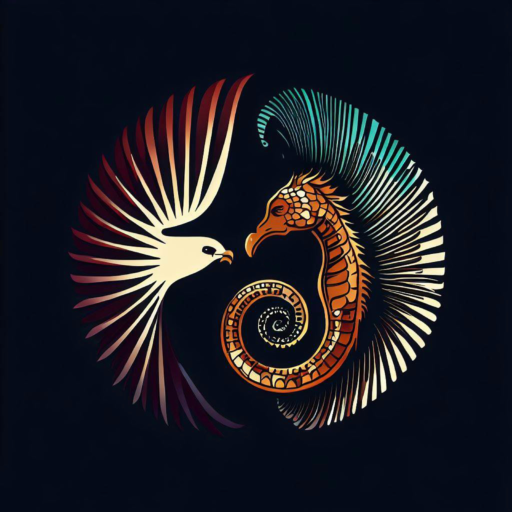
Empowering Scientific Exploration: The Beauty of Citizen Science
Citizen science is a concept that involves everyday individuals like you and me contributing to scientific research. It empowers ordinary people to become involved in collecting valuable data that can help scientists gain insights into various fields. The beauty of citizen science lies in its accessibility and inclusiveness. It enables anyone with an interest in science and exploration to make meaningful contributions to research projects.
Understanding the Concept of Citizen Science
At its core, citizen science is about engaging the public in scientific endeavors. It recognizes that scientific research can benefit from the collective power of enthusiastic individuals. Citizen scientists play a vital role in data collection, providing researchers with a vast array of information that would otherwise be impossible to gather alone.
But what exactly does it mean to be a citizen scientist? It means actively participating in scientific projects, contributing to the advancement of knowledge in various fields. It means being curious, observant, and willing to dedicate time and effort to make a difference. Citizen scientists come from all walks of life, united by their shared passion for science and their desire to make a meaningful impact.
The Role of Citizen Scientists in Data Collection
Citizen scientists contribute to various scientific projects by collecting, recording, and sharing data. They often take part in activities such as observing and documenting natural phenomena, monitoring wildlife populations, or even contributing to the analysis of complex datasets. By harnessing the power of collective observations, citizen scientists can help researchers uncover patterns, identify trends, and make groundbreaking discoveries.
Imagine a group of citizen scientists gathering at a local park, armed with binoculars, notebooks, and cameras. They spend hours observing and recording the behavior of migratory birds, noting down their species, numbers, and any interesting behaviors they witness. This data, combined with similar observations from citizen scientists all over the world, provides researchers with a comprehensive understanding of bird migration patterns and helps them track changes over time.
But citizen science isn’t limited to the great outdoors. In the digital age, citizen scientists can also contribute to projects that rely on online platforms and tools. They can analyze large datasets, categorize images, or even participate in online experiments. This opens up a world of possibilities, allowing people from all corners of the globe to contribute to scientific research, regardless of their physical location.
The Intersection of Science and Everyday Life
Citizen science blurs the line between scientific research and everyday life. It encourages individuals to explore their surroundings, appreciate the natural world, and develop a deeper understanding of the scientific process. As citizen scientists, we have the opportunity to contribute to research projects while exploring our own interests and passions.
Imagine a young child, fascinated by the night sky, using a smartphone app to identify constellations and report their observations to a global astronomy project. This simple act of stargazing becomes a valuable contribution to scientific knowledge, while also nurturing the child’s curiosity and love for the cosmos.
Citizen science also fosters a sense of community and collaboration. It brings people together, connecting them through a shared purpose and common goals. Whether it’s participating in a local beach cleanup to collect data on marine debris or joining an online forum to discuss findings and exchange ideas, citizen scientists form a network of like-minded individuals, united by their passion for science and their commitment to making a difference.
So, the next time you find yourself marveling at the wonders of nature or pondering the mysteries of the universe, remember that you have the power to contribute to scientific research. Embrace your inner citizen scientist, and let your curiosity guide you on a journey of discovery and exploration.
Introduction to iNaturalist
iNaturalist is an online platform that brings together citizen scientists from around the world. It provides a user-friendly interface for recording and sharing observations of biodiversity. With a vast community of nature enthusiasts and experts, iNaturalist serves as a hub where individuals can collaborate and contribute to scientific research.
Imagine a world where anyone with a smartphone or a camera can contribute to scientific knowledge. That’s the power of iNaturalist. By simply taking photos and sharing descriptions of the species they encounter in their surroundings, users become part of a global effort to document and understand the natural world.
Whether you’re a seasoned naturalist or just starting to explore the wonders of nature, iNaturalist welcomes everyone. It’s a platform that encourages curiosity and discovery, allowing individuals to connect with like-minded individuals and learn from each other’s experiences.
How iNaturalist Works
Using iNaturalist is simple and straightforward. The platform allows users to upload photos and descriptions of the species they encounter in their surroundings. These observations can range from plants and animals to fungi and insects. The community then helps in identifying and verifying these observations, ensuring the accuracy of the data.
Once an observation is uploaded, it becomes part of a vast database that is accessible to scientists, researchers, and nature enthusiasts worldwide. This data is not only valuable for understanding the distribution and abundance of different species but also for monitoring changes in biodiversity over time.
But iNaturalist is not just about sharing observations; it’s also about learning. The platform uses cutting-edge technology, including artificial intelligence and machine learning, to assist in species identification. This means that even if you’re not an expert, you can still contribute valuable data and learn more about the organisms you encounter.
The Benefits of Using iNaturalist
One of the significant benefits of using iNaturalist is the access to a vast network of experts and fellow enthusiasts. By sharing observations on the platform, users can receive feedback, learn from others, and deepen their understanding of the natural world.
Imagine uploading a photo of a rare bird you spotted in your backyard and receiving comments and insights from renowned ornithologists or passionate birdwatchers. iNaturalist makes this possible, creating a sense of community and fostering a love for nature.
Additionally, iNaturalist offers opportunities for collaboration, allowing citizen scientists to participate in research projects and contribute to scientific publications. By joining projects focused on specific species or regions, users can actively contribute to scientific knowledge and conservation efforts.
Furthermore, iNaturalist provides a platform for educators to engage their students in hands-on learning. Teachers can create projects and assignments, allowing students to explore and document the biodiversity in their local environment. This not only enhances their scientific knowledge but also instills a sense of stewardship towards the natural world.
In conclusion, iNaturalist is more than just an online platform. It’s a global community united by a shared passion for nature and a desire to contribute to scientific understanding. Whether you’re an amateur naturalist, a professional scientist, or simply someone who appreciates the beauty of the natural world, iNaturalist welcomes you to join its ever-growing network of curious minds.
iNaturalist and Adventure Travel
Adventure travel and exploration often take us to breathtaking landscapes and exotic destinations. But what if we could enhance our travel experiences by actively contributing to scientific knowledge? With iNaturalist, this is now a possibility.
Enhancing Travel Experiences with iNaturalist
By using iNaturalist during our adventures, we can transform our explorations into valuable research opportunities. Every sighting and observation can contribute to the understanding and preservation of the places we visit. Furthermore, engaging with iNaturalist allows us to connect with local communities and foster a deeper appreciation for the biodiversity of the regions we explore.
The Impact of iNaturalist on Adventure Tourism
iNaturalist has the potential to revolutionize adventure tourism by enabling travelers to actively participate in scientific research. Through the platform, adventure tourists can not only immerse themselves in nature but also leave a lasting impact by becoming citizen scientists. This engagement fosters a sense of environmental stewardship and promotes responsible travel practices.
iNaturalist for Backyard Exploration
Not all scientific discoveries happen in far-flung corners of the world. Our own backyards can be fascinating and abundant sources of biodiversity. iNaturalist provides a unique opportunity to explore and study the ecosystems right outside our homes.
Turning Your Backyard into a Laboratory with iNaturalist
With iNaturalist, your backyard can become a window into a world of natural wonders. By observing and documenting the plants, insects, birds, and other creatures that call your backyard home, you can contribute to our collective knowledge of local ecosystems. This firsthand experience of scientific inquiry can be both educational and fulfilling.
The Role of iNaturalist in Urban Ecology
iNaturalist also plays a crucial role in urban ecology by helping us understand how wildlife adapts to and interacts with urban environments. By documenting the species we encounter in cities and towns, we can gain insights into the effects of urbanization and develop strategies to support and protect urban biodiversity.
The Future of Citizen Science and iNaturalist
Citizen science and iNaturalist have come a long way, but their journey is far from over. As technology and our understanding of the natural world continue to advance, so too will the potential of citizen science and platforms like iNaturalist.
Potential Developments in Citizen Science
Looking ahead, we can expect citizen science to become even more integrated into scientific research processes. Advances in data processing and analysis will further enhance the value of citizen-contributed data, enabling more significant contributions to scientific knowledge.
How iNaturalist Could Evolve in the Future
iNaturalist is likely to evolve in several ways in the future. We can anticipate improvements in user interfaces and greater accessibility for individuals with diverse backgrounds and abilities. Additionally, the platform may incorporate new technologies such as artificial intelligence to streamline data verification processes and enhance the overall user experience.
In conclusion, citizen science and platforms like iNaturalist have brought science and exploration within reach of everyday individuals. By participating in citizen science, we can not only enhance our adventure travel experiences but also contribute to scientific research and deepen our understanding of the natural world. Whether it’s exploring remote landscapes or studying our own backyards, citizen science offers us a unique opportunity to connect with nature and make a meaningful impact on scientific knowledge. So, let’s grab our cameras, note down our observations, and embark on a journey of discovery with iNaturalist.



